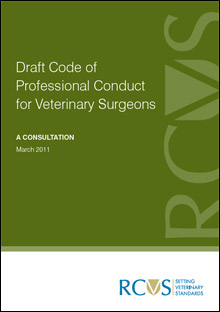-
-
- Council Members
- Role of Council Members
- Council meetings
- Council elections
- Previous election results
- Dr Louise Allum
- Dr Sam Bescoby
- Dr Andrew Clemence
- Dr Tshidi Gardiner
- Dr Reginald Godwin
- Paddy Gordon
- Dr Danielle Greenberg
- Dr Gerard Henry
- Dr Richard Hillman
- Dr Benjamin Kennedy
- Dr Tom Lonsdale
- Dr Darren Partridge
- Martin Peaty
- Alison Price
- Dr Peter Robinson
- Dr Jennifer Simmons
- Dr Sadie Spencer
- Dr Mary Thomas
- William Wilkinson
- Dr Lara Wilson
- Past-Presidents
-
-
-
-
-
- About extra-mural studies (EMS)
- EMS requirements
- Information for vet students
- Information for EMS providers
- Information for vet schools
- Temporary EMS requirements
- Practice by students - regulations
- Health and safety on EMS placements
- EMS contacts and further guidance
- Extra-mural studies fit for the future
-
-
- Code of Professional Conduct for Veterinary Surgeons
- Code of Professional Conduct for Veterinary Nurses
- Contact the Advice Team
- XL Bully dog ban
- 'Under care' - guidance
- Advice on Schedule 3
- Controlled Drugs Guidance – A to Z
- Dealing with Difficult Situations webinar recordings
- FAQs – Common medicines pitfalls
- FAQs – Routine veterinary practice and clinical veterinary research
- FAQs – Advertising of practice names
- GDPR – RCVS information and Q&As
Feedback sought on new draft Code of Professional Conduct
25 March 2011
We are now seeking feedback on a new draft Code of Professional Conduct, which would replace the existing RCVS Guide to Professional Conduct for Veterinary Surgeons.
The draft Code has been produced by a Working Party set up by our RCVS Advisory Committee to review the Guides for both veterinary surgeons and veterinary nurses.
The purpose of the review, which last took place over a decade ago, is to ensure guidance to the profession, and the public, is clear, for example, using consistent language to distinguish between what must be done and what is advised.
The new Code is a short, principles-based document using the Federation of Veterinarians of Europe’s Code of Conduct as the starting point.
It will be supported by additional advice on specific areas of veterinary practice or issues, for example, clinical governance.
The draft includes a compulsory continuing professional development requirement, the RCVS Health Protocol and more on clinical competence, and gives prominence to relevant medicines issues.
It also contains an updated declaration to be made by veterinary surgeons, which gives increased emphasis to animal welfare.
Animal owners are increasingly keen to understand the basis of what the veterinary profession considers to be good professional conduct.
“Over the decade or so since it was last reviewed, not only has the Guide become unwieldy in places, but the way that regulators in general publish professional conduct rules has changed. Our draft new Code aims to clarify matters and bring us into line with best practice elsewhere,” says Clare Tapsfield-Wright, Chairman of the Guides Review Working Party.
“Animal owners are increasingly keen to understand the basis of what the veterinary profession considers to be good professional conduct. The new simplified Code should assist with this understanding,” she adds.
The consultation, which includes the new Code may be downloaded in our Consultations section.
Comments, which are welcomed from the profession and the public, should be sent by email to Christopher Murdoch, Secretary to the Guides Review Working Party, at [email protected] by Friday, 24 June 2011.
A separate document is under development for veterinary nurses, which will share broadly similar underlying principles and will be the subject of its own consultation.
